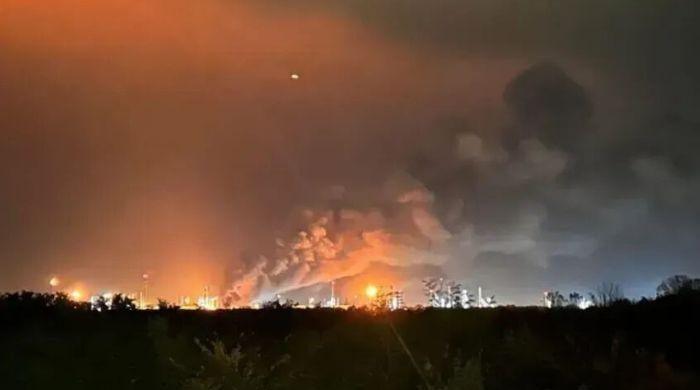Large explosions hit two key oil refineries in Hungary and Romania within hours of each other on Monday 20 October.
Due to the suspicious timing of the explosions, there is speculation of coordinated sabotage amid heightened tensions over Europe’s energy dependence on Russia.
The first explosion occurred at the Petrotel-Lukoil refinery in Plioiesti, Romania around 11:30 a.m. local time.
After the incident, only one injured worker was reported, who was injured during maintenance work on the industrial sewage system.
The Petrotel-Lukoil refinery is one of the largest facilities in Romania and is owned by the Russian company Lukoil.
Hours later, another fire and explosions hit the MOL Danube refinery in Százhalombatta, Hungary.
Rescue crews extinguished the fire in time without any injuries being reported.
The refinery is highly significant as it acts as a crucial hub for Hungary and Slovakia, which processes crude oil from the Russian Druzhba pipeline, which ceased operations when the investigations began.
Due to the near-simultaneous timing of the incidents, with both incidents sharing a similarity with a lack of immediate technical explanations, it gives rise to widespread suspicion of deliberate attacks.
The explosions coincided with a crucial EU move that came on the same day EU energy ministers backed a proposal to phase out Russian energy imports by 2028.
This plan provides limited exemptions for landlocked states such as Hungary and Slovakia.
The events take place against the background of a secret “war on energy.”
Recently, Ukraine conducted a successful long-range drone strike operation against Russian refineries, significantly reducing Moscow’s fuel production and export earnings.
Moreover, Ukraine has also been involved in sabotage operations targeting Russian energy infrastructure in allied countries, an argument raised in a recent diplomatic row between Poland and Germany over the 2022 sabotage of the Nord Stream pipeline.
Although the governments of both Romania and Hungary have launched formal investigations and have not mentioned sabotage, the geopolitical background makes it certain that such technical failures will be investigated as possible incidents of a growing shadow war.



